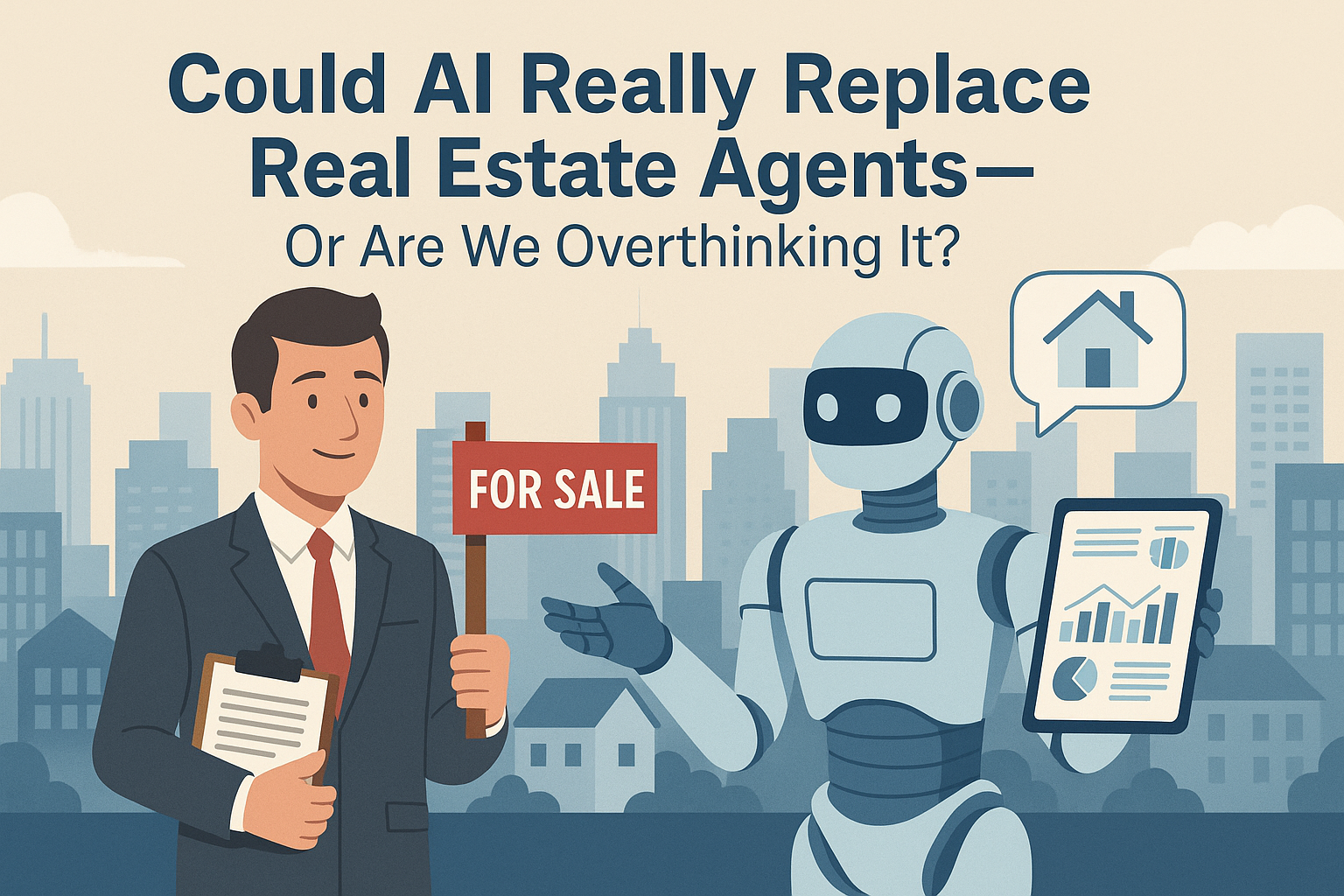Could AI Really Replace Real Estate Agents in the Twin Cities — Or Are We Overthinking It?
As the Director of Technology for a top real estate brokerage, I hear this question more than ever: “Could AI eventually replace real estate agents?”
It’s a fair question. AI is transforming everything from healthcare to finance — and yes, the real estate industry here in the Twin Cities is feeling the shift, too.
But before we start writing AI’s victory speech, let’s slow down, look at the facts, and talk about what AI can do, what it can’t do, and how agents in Minnesota can thrive in a tech-driven future.
The Role of Real Estate Agents — and Why It Still Matters
A great Twin Cities agent isn’t just someone who unlocks doors and writes up contracts.
They’re a market guide, a negotiator, and a trusted advisor during what’s often the biggest financial decision of a person’s life. They know whether a property in Edina is overpriced, which neighborhoods in St. Paul are heating up, and what small repairs can add thousands to a sale price.
And let’s not forget — buying or selling a home is deeply emotional. Clients want to feel heard, understood, and supported. That’s something even the most advanced algorithms still can’t replicate.
How AI Is Showing Up in Minnesota Real Estate
AI isn’t some distant future — it’s already here in the Twin Cities market:
Property Valuation Tools: AI models can quickly estimate a home’s value by analyzing recent sales in Minneapolis, interest rate trends, and seasonal demand patterns.
Chatbots & Virtual Assistants: Buyers browsing listings in Eden Prairie can get instant answers to their questions — at 2 a.m. if needed.
Predictive Analytics: AI can forecast which neighborhoods are most likely to appreciate based on zoning changes, new developments, and migration patterns.
These tools help streamline operations, but they don’t replace the need for a human to interpret and act on the insights.
The Limits of AI in Real Estate
Let’s be clear: AI is powerful, but it’s not perfect.
It doesn’t do empathy. Algorithms can’t feel the excitement of a first-time buyer in Lakeville or the stress of a family downsizing after 20 years in their Woodbury home.
It can’t navigate every nuance. Minnesota’s real estate laws, inspection requirements, and financing options can get complex. A bad AI interpretation of local regulations could cost a deal.
It can’t negotiate with emotion. Sellers don’t just accept offers based on numbers; they respond to how those offers are presented and the relationships behind them.
AI + Agents = A Better Way Forward
Instead of viewing AI as competition, the smartest agents in the Twin Cities see it as a teammate.
Here’s what that looks like in action:
AI crunches the data — pulling comps, generating property reports, and identifying trends.
The agent applies human judgment — advising clients on the “why” behind the numbers and tailoring a strategy.
This combo means agents can spend less time buried in spreadsheets and more time building relationships, finding opportunities, and closing deals.
Adapting as a Twin Cities Agent in the Age of AI
If you’re an agent here in Minnesota, now’s the time to lean in:
Learn the tools. Take time to explore AI-powered CMA platforms, lead-nurturing systems, and automated marketing tools.
Focus on what’s uniquely human. Your listening skills, local market intuition, and negotiation experience are irreplaceable.
Offer more, not less. When AI handles the busywork, you can double down on client service, faster follow-ups, and creative deal-making.
FAQ: AI & Real Estate in the Twin Cities
Will AI lower commission rates for Twin Cities agents?
Possibly, but only if agents don’t adapt. Those who use AI to offer faster, more informed service will justify — and even increase — their value.
Can AI replace open houses in Minnesota?
AI can market them better (virtual tours, targeted ads), but the in-person connection at an open house in Maple Grove or Bloomington still matters.
What’s the best way for agents here to start using AI?
Begin with marketing tools — automated social media content, market reports, and lead follow-up systems. They’re easy to implement and deliver quick wins.
The Bottom Line
AI isn’t here to take away the Twin Cities real estate agent’s job — it’s here to make it easier, faster, and more efficient.
The agents who thrive will be those who embrace AI for what it is: a powerful partner that handles the heavy lifting so you can focus on what no machine can do — building trust, solving problems, and guiding clients through life-changing moments.
If you’re an agent in Minneapolis–Saint Paul, the future isn’t man or machine. It’s man and machine, working together. And the sooner we embrace that, the better.

